In this rebroadcast episode, Mark Ethier, founder of iZotope, reveals how he built a thriving organization by prioritizing empowerment, purpose, and innovation. Learn his practical insights on modern management, Agile transformation, sustainable innovation, and how to create a workplace where people genuinely want to contribute their best. Read More
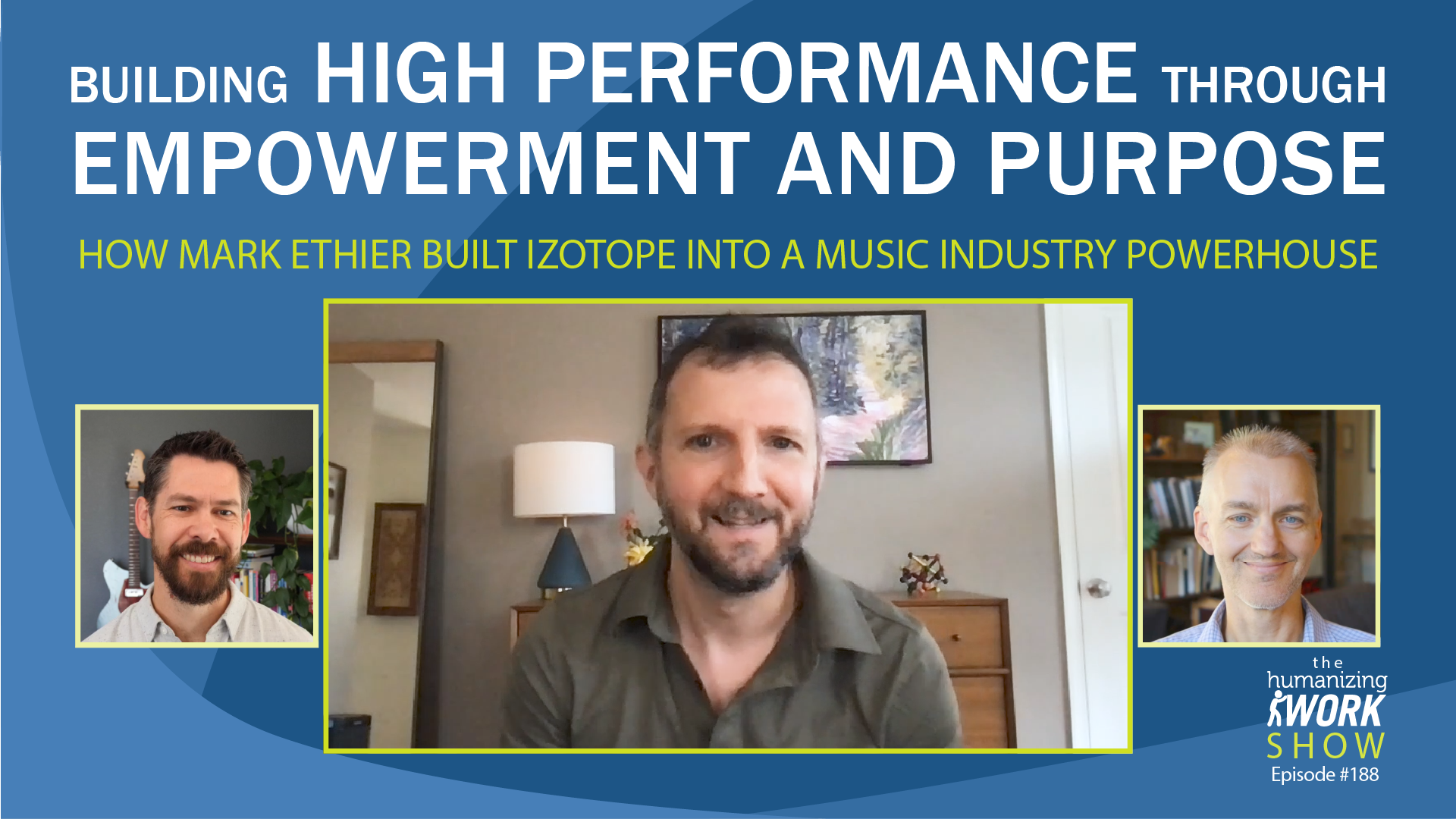
Prev 1 of 1 Next… Read More

This episode walks through each part of Scrum to help you decide what’s essential for your team—and what might be optional. Read More

Learn how small breakout groups can turn meetings dominated by a few voices while others struggle or hesitate to contribute, into lively, productive discussions that boost creativity and clarity. Read More
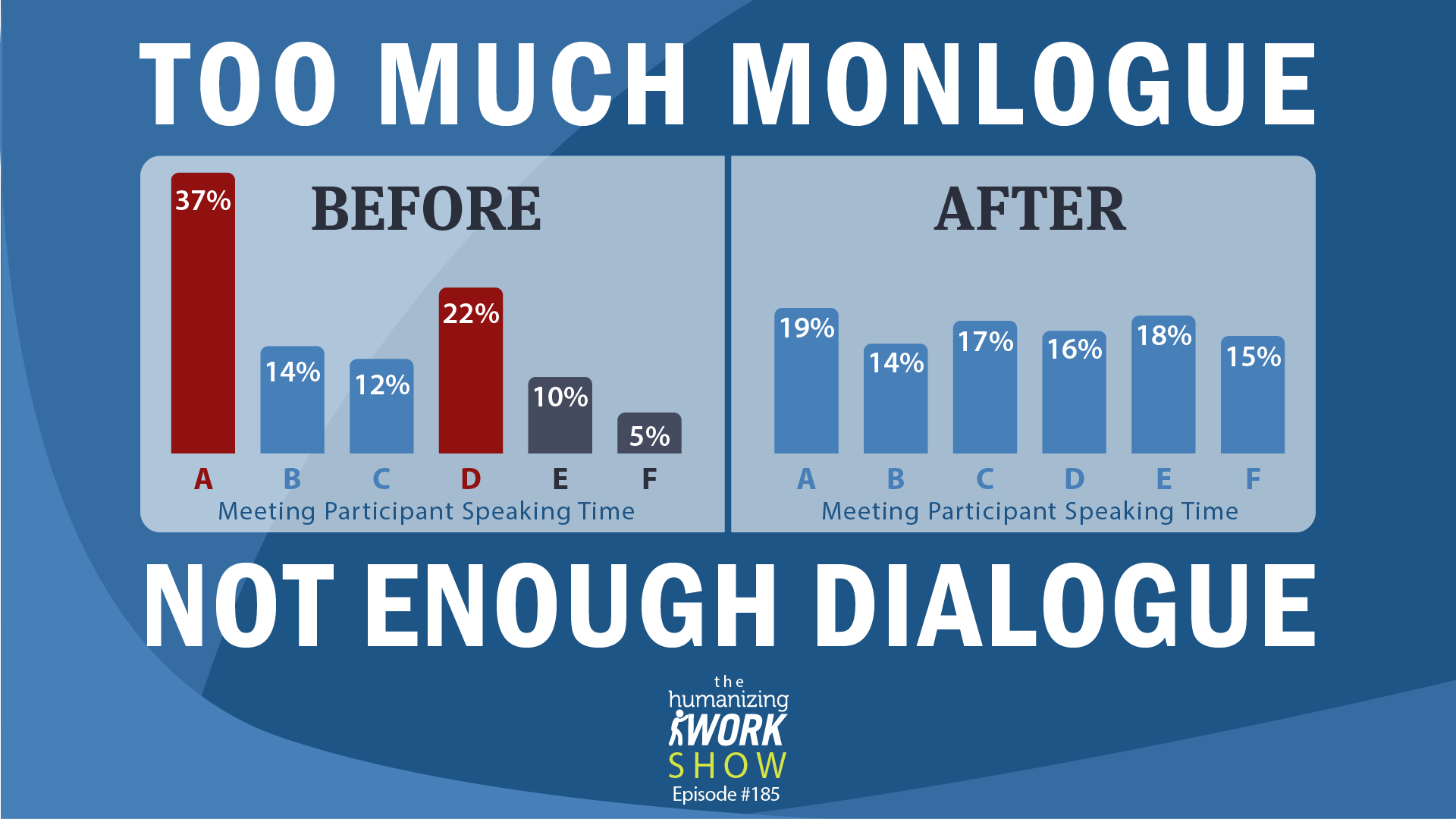
When Richard gave Peter honest feedback about a missed commitment, it could’ve gone badly. Instead, it sparked trust, better work, and a stronger team. Here’s how they made it a turning point—not a breakdown. Read More
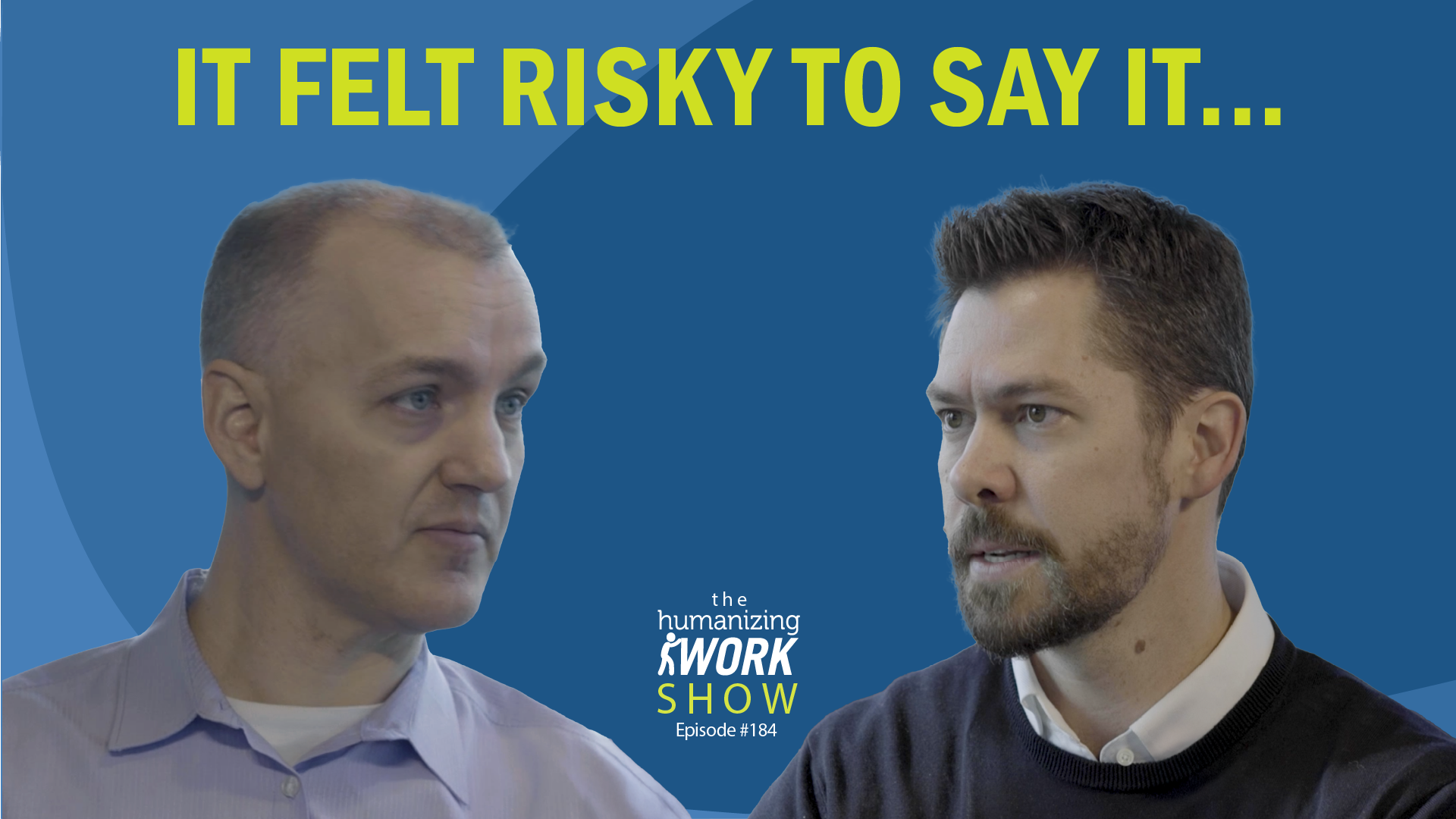
Giving feedback is one of the hardest things we do at work—and one of the most important. In this episode, we share a simple, practical approach to giving feedback that’s more likely to be true, useful, and kind.
You’ll learn: How to ground feedback in what you actually observed, Why asking permission makes feedback more effective, What makes feedback kind without watering it down, How to handle the conversations you’ve been avoiding. Whether you’re a leader, coach, teammate, or friend, this episode will help you speak up in a way that builds trust and creates change.
Need a framework to guide feedback on work products or behavior? Check out the Humanizing Work Feedback Process. Read More

Backlog refinement shouldn't be the most painful meeting of the week—but for many teams, it is. Too much detail too early. Vague stories. Half the team checked out. And eventually, no one shows up at all. In this episode of the Humanizing Work Show, we’ll show you three practical changes that turn backlog refinement from a dreaded chore into a valuable, collaborative part of your Agile process. These tips will help you reduce churn, strengthen stakeholder relationships, and make sprint planning smoother.
If you’ve ever found yourself wondering why Agile feels harder than it should, this might be the place to start. Read More
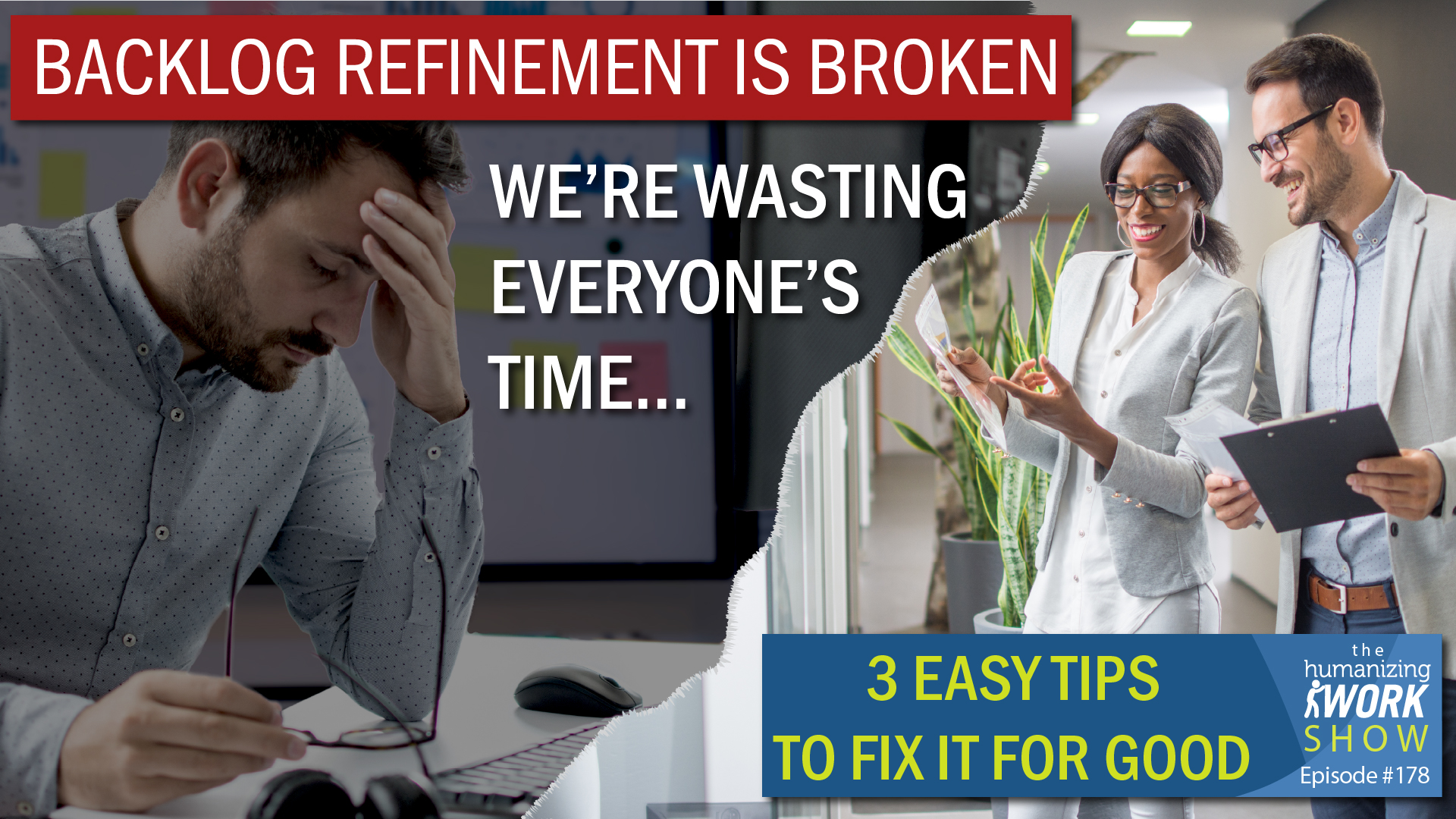
One tip. One meeting. Big impact. In this rapid-fire episode, we show how a small change to each Scrum event can eliminate frustration and create flow. If your Backlog Refinement, Sprint Planning, Daily Scrum, Sprint Review, or Sprint Retrospective has become stale, bureaucratic, or unproductive, we’ve got a simple tweak for each that takes under a minute to explain. Pick one meeting and improve it, or do a pass through all of them, and help your team get much more productive immediately! Read More
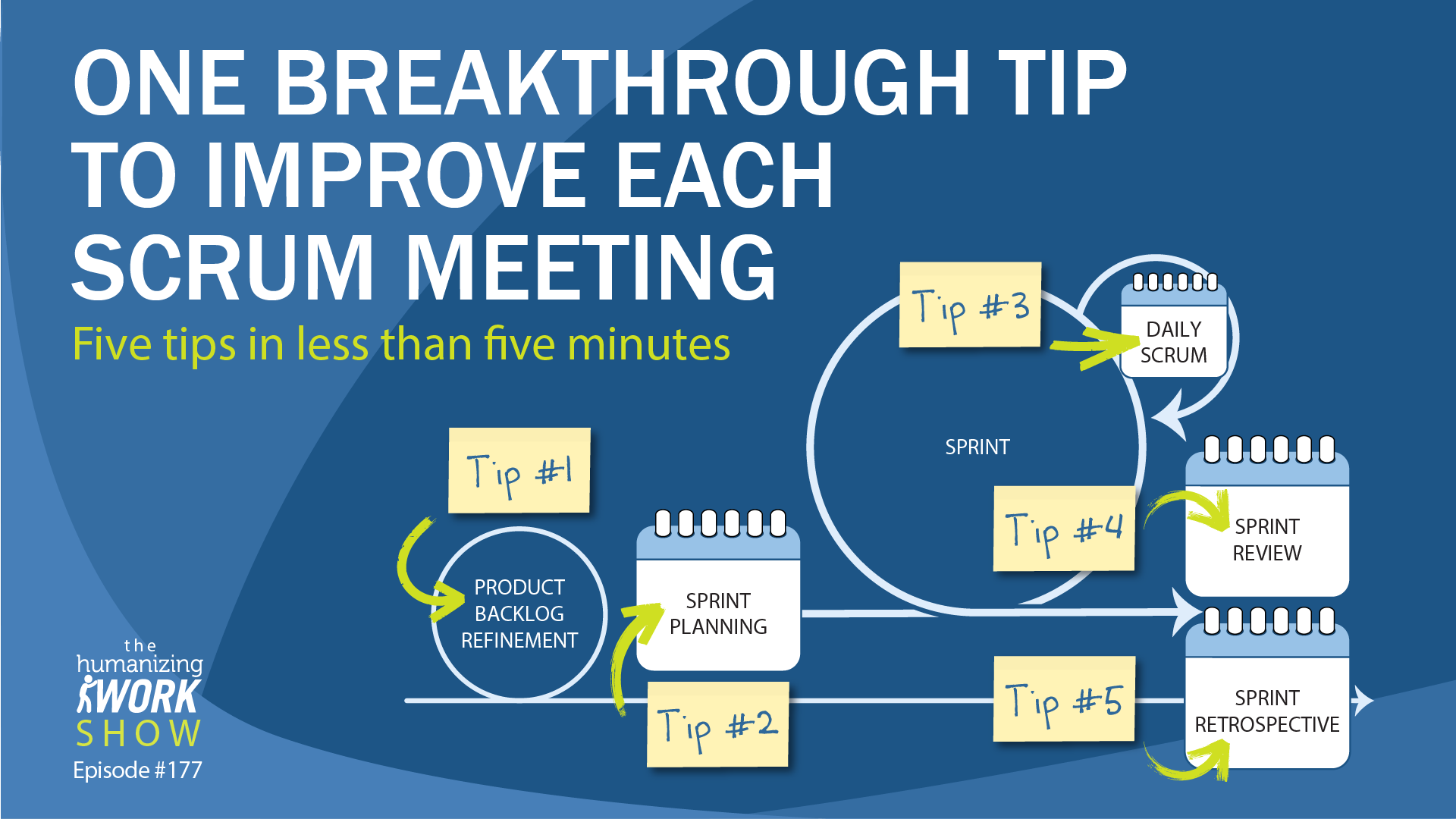
Many organizations struggle to balance **predictability** with **adaptability** in large initiatives. Too much planning creates rigidity, while too little leads to chaos. In this episode of the Humanizing Work Show, we dive into **Phases 3 & 4 of CAPED**—our **Complexity-Aware Planning, Estimation, and Delivery** approach—where we create a structured execution plan while keeping room for change.
Phase 3 (**Analytical Planning**) ensures that teams build a **realistic, risk-aware plan** by defining **What we’re building, How we’ll ensure quality, and When it will be delivered**.
Phase 4 (**Iterative Execution**) brings that plan to life with **incremental delivery, adaptive prioritization, and continuous planning cycles** that keep projects aligned and valuable. Read More
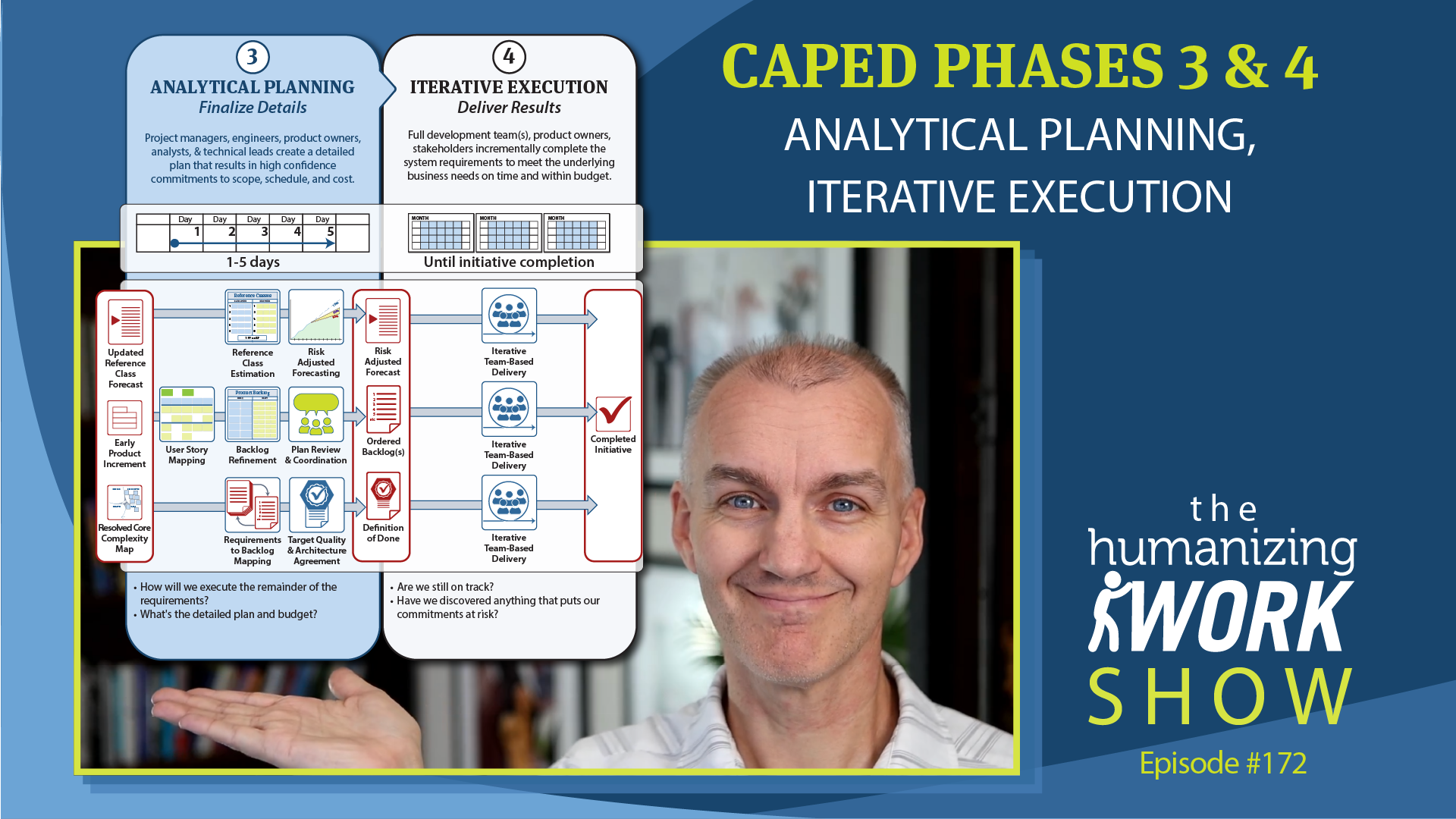
Software teams have used Agile techniques to iterate during execution for years. But what if the cost of iteration is too high to change after planning is complete?
In Phase 2 of the CAPED process—Active Planning—we resolve complexity before committing to a full-scale execution plan. In this episode, we explore how Pixar and architect Frank Gehry use iterative planning techniques to test and refine their ideas early—just like CAPED helps teams tackle uncertainty in big, complex initiatives. Read More










